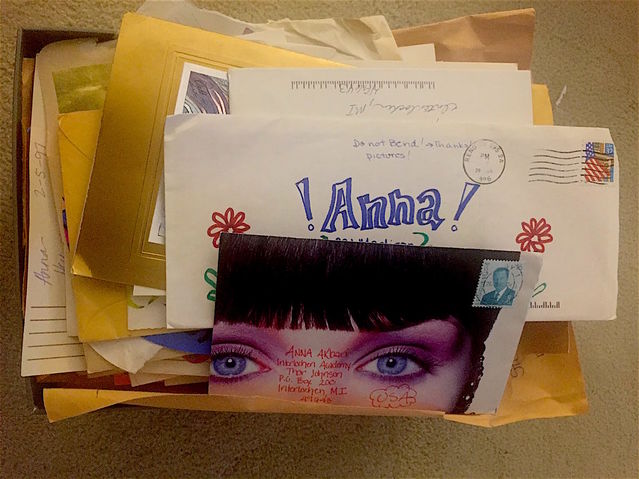Gratitude
Your Gratitude Archive
Boost through daily gratitude mantras and letter writing.
Posted June 4, 2018
"Thank you." Two words most of us say everyday. To strangers, loved ones, and hopefully also to ourselves. But polite, habitual responses are different than a meaningful gratitude practice.
Gratitude. It’s been the darling of self-help for a while now, and for good reason. Scientific research consistently shows that gratitude boosts happiness, supports physical and mental well-being, and strengthens relationships.
Chances are, I don’t need to convince you of the benefits of gratitude. But how can you sustainably integrate it into your life?
Gratitude journals have become popular—and it’s something I’ve used off and on over the years, as well. Writing down the things we’re thankful for on a daily basis does have a measurable effect. But for many, while that ritual may excite and engage at first, it often tapers off after weeks or months.
As an alternative, here are two gratitude practices that give me the most pleasure:
1. An internal daily mantra of gratitude. My grandfather wrote a morning prayer of gratitude that he repeated silently every day for decades. For him, it was a way of saying thank you for a new day, of cleaning the slate, of recognizing the possibilities, challenges, and choices that awaited him each morning. He knew nothing of the science of gratitude, but taking a moment to say thank you everyday instinctually felt right to him. (He happened to be a man of faith, but religious affiliation is in no way necessary for carving out a moment of gratitude.) Even a simple one-line mantra can suffice. Just something that can float into your mind, receive momentary attention, and circulate back again the next day.
2. Letter writing — just because. I spent most of this past weekend going through boxes of old stuff. Everything from childhood toys to college class syllabi passed through my hands. But the things that captured my attention the most were the old pieces of correspondence I’ve collected over the years. Beginning with awkwardly scribbled, crayon-drawn greetings in elementary school, to gushing first love letters, to philosophical meanderings from kindred spirits I’ve met along my path, revisiting these writings touched me in a way I hadn’t anticipated. Not because I doubt the power of the written word, but because when most of our words are currently expressed to the general masses, nothing makes you feel quite so special as a note intended for your eyes only.

I’ve long argued that in a distracted, digital age, focus and attention on another individual is the greatest gift you can give.
Some of the letters I’ve accumulated came to me when texting or email were not an option. When the author wasn’t even sure I’d receive the message—and even if I did, they knew it could be months before they’d hear a response. Sometimes the letters spanned many pages. Others scribbled in the margins of post cards. Others were short, but poignant. All of them excited me when I received them then, and they fill me with immense gratitude as I reread them now.
I invite you to dig into wherever you collect your correspondence and set aside some time to reread a few notes — no need to do it all at once; consider making it a weekly ritual.
Perhaps, like me, you will discover perceptions of yourself that you never fully realized at the time. Or maybe it will remind you of the value of various relationships at different points in your life. Some words may bring up old, difficult emotions, but that is merely an opportunity to express more gratitude for having moved beyond that place.
And if you are so inclined, perhaps this exercise will prompt you to write a few letters of your own. Letters to be added to the gratitude archive of other people in your life, that they can revisit over time.
Words are precious. And when inscribed and shared intentionally, their meaning can reverberate for years.
Thank you to everyone who has ever shared their words directly with me. I am grateful.


